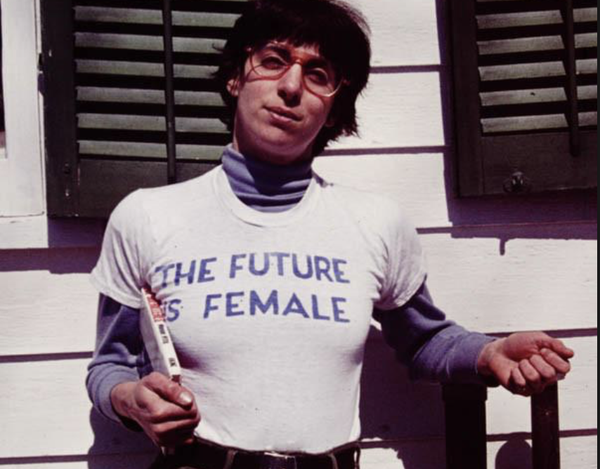Twelve years, that's how long acclaimed director Alfonso Cuarón had consciously been wanting to tell the semi-biographical story of Roma. Set against the political turmoil of Mexico City in the early 70's, Roma follows the maid to a middle class family in a neighborhood better known in Mexico as la Colonia Roma. The movie touches on themes of ethnicity, class and inequality, but at its core it's also a movie about family and love. The heart wrenching portrayal of a family going through hardships is both universal and intimate, resulting in a movie which audiences can relate to. Recent years have seen an increase in the stories represented in film but lack of diversity and inclusion are still prevalent in the industry. Roma came to life with perfect timing, it won't be enough to change the industry as a whole but it's a start.
The critically praised movie first came out in August at the 75th Venice International Film Festival, where it went on to win the Golden Lion for best film. It then went on to do the festival circuit where it kept on garnering praise from critics and audiences alike. Its opening weekend in late November saw a successful yet limited theatrical release. Roma finally became available to audiences everywhere on Friday December 14th with its Netflix release.
The black and white movie opens with an overhead shot of a floor, we hear the sound of water rushing down and we come to realize that the floor is being washed. Soon enough we see a full shot of the person doing the cleaning. The person doing the cleaning is Cleo, the heart and soul of Roma. Cleo is based on Cuarón's childhood maid. Finding the perfect person to play her was essential in order for the film to work. Before finding Aparicio, Cuarón and his casting team had been looking for a Cleo for close to a year. Despite being Aparicio's movie debut she gives a heart breaking performance of what's it's like to be an insider on the outside.
The first twenty minutes or so establish Cleo's position as glue-holder of the household. We see her clean the house, wash the clothes, pick up after the dog, and take care of the kids, among many other tasks. At times it seems like she's more of a parent to the kids than their actual parents. Having grown up in Mexico, in a society where maids are employed at most if not all middle class households. I have been witness to many parents' absences and the importance the maids acquire in lieu of the children's parents. All of that is not to say that Sofia, the children's actual mother is a bad one, she is still very much present in her children's life.
Early in the movie Sofia's husband leaves for a work trip and it soon becomes clear that he's not coming back. A similar thing happens to Cleo, who is left by her boyfriend after an unwanted pregnancy arises. At one point Sofia comes back home drunk and proclaims the following words to Cleo: "We are alone. No matter what they tell you, we women are always alone." Despite the sadness and disappointment that both women experience in respect to their partner's behaviors, they refuse to be screwed over by them and they eventually rise up from the ground, and they deal with the messes that were left behind by the men for them to take care of, and they are stronger for it. For decades films showed women as these perfect human beings who had everything under control and were always second to men. With the rise of the MeToo movement this has been changing and it's movies like Roma that portray women in an honest light, that are actually changing the industry standards for women and their characters.

It's the fact that they're in similar situations that bring Cleo and Sofia closer but it's their relationship as employee and employer that pulls them apart. In Mexico inequality has been prevalent, ever since the Spanish colonization of Mexico. Spanish people took everything from indigenous people and made them feel like strangers in their own country, and it's something that still affects dynamics in Mexico. Sofía is a white woman with clear Spanish descent, Cleo comes from an indigenous village. Sofia may love Cleo and think of her as family. But whenever something goes wrong in Sofia's life she takes it all out on Cleo. Throughout the years I have seen this dynamic between maids and employers in Mexican households. One minute they're part of the family and the next they're screaming at the maid for not doing her job correctly. This stems not only from the employee-employer relationship but from the superiority complex that white people have had for centuries (which they may not even be conscious about) over indigenous people.
In an industry where inequality and diversity are big issues, indigenous people have more often than not gotten the short end of the stick. The problem isn't only that there are no representations of indigenous people in films, but also that the same actors keep on appearing in the very few roles that do exist. That's part of why it was so essential for the movie to combine Spanish, with the Mixtec language of Cleo's native home. Aparicio once said something that really stuck with me, "certain stereotypes are being broke, that only people with a certain profile can be actresses or be on the cover of magazines." Indigenous people have been pushed aside for long enough, and it's people like Aparicio, De Tavira and Cuarón that are making sure they are no longer ignored. It's time for the world to understand that everyone has a story to tell and we all need to listen.



















